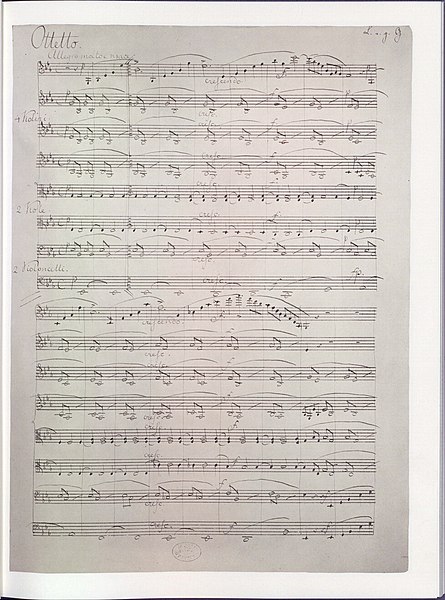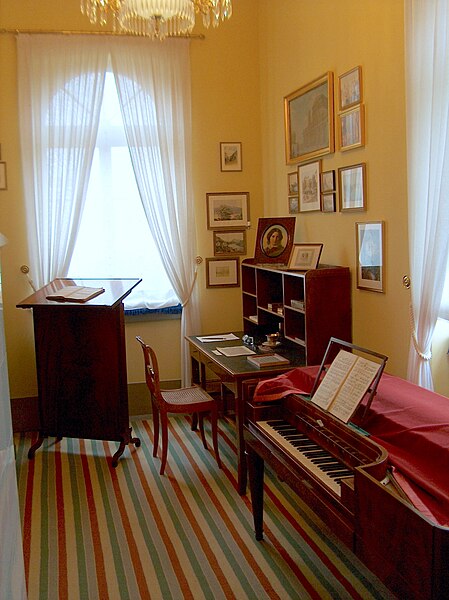The String Octet in E-flat major, Op. 20, MWV R 20, was written by the 16-year-old Felix Mendelssohn during the fall of 1825 and completed on October 15. Written for four violins, two violas, and two cellos, this work created a new chamber music genre. Conrad Wilson summarizes much of its reception ever since: "Its youthful verve, brilliance and perfection make it one of the miracles of nineteenth-century music." This was one of the first works of Mendelssohn to be very well received.
First page of the autograph manuscript
Jakob Ludwig Felix Mendelssohn Bartholdy, widely known as Felix Mendelssohn, was a German composer, pianist, organist and conductor of the early Romantic period. Mendelssohn's compositions include symphonies, concertos, piano music, organ music and chamber music. His best-known works include the overture and incidental music for A Midsummer Night's Dream, the Italian Symphony, the Scottish Symphony, the oratorio St. Paul, the oratorio Elijah, the overture The Hebrides, the mature Violin Concerto, the String Octet, and the melody used in the Christmas carol "Hark! The Herald Angels Sing". Mendelssohn's Songs Without Words are his most famous solo piano compositions.
Portrait from 1846
Felix Mendelssohn aged 12 (1821) by Carl Joseph Begas
First page of the manuscript of Mendelssohn's Octet (1825) (now in the US Library of Congress)
The composer's study in Mendelssohn House, a museum in Leipzig




